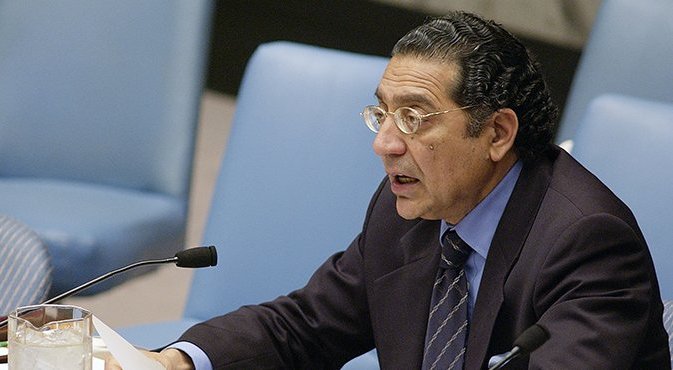UNITED NATIONS, The President of UN Economic and Social Council (ECOSOC), Pakistani Ambassador Munir Akram, has stressed the need for addressing inequality at the international and national levels to promote the goal of justice envisioned in the Sustainable Development Goals (SDGs) as part of efforts to build international peace and security.
“Justice flows from equality; injustice from inequality, discrimination and lack of fairness in policy and practice,” he said in his online remarks to the SDG-16 Conference 2021 which is being held in Bangkok, the headquarters of the UN Economic and Social Commission (UNESCAP).
Ambassador Akram said that the implementation of SDG-16, which calls for “peace, justice and strong institutions,” required work at the international level toward an inclusive and equitable global financial architecture; a fair and inclusive international tax regime; an equitable and development – oriented trade regime, and an end to illicit financial outflows from developing countries and the reform of their stolen assets.
At the national level, he said, the United Nations can extend assistance to countries to promote justice, adherence to the rule of law and good governance, especially to countries emerging from conflict and where judicial institutions have collapsed.
However, elsewhere, such assistance should be extended at the request of the governments of the concerned countries, he said, noting there were numerous situations in certain advanced countries where inequality and discrimination, especially against minorities and immigrants, requires redress and a greater adherence to the principles of international law and human rights.
In his remarks, the ECOSOC chief also called for adherence to the principles of the UN Charter – the non-use of force, respect for the sovereignty and territorial integrity of states, non-interference in their internal affairs, and exercise of the right of self-determination by peoples.
Noting that the coronavirus pandemic has exacerbated poverty and inequality among and within countries, he said the recently concluded ECOSOC Financing for Development (FfD) forum had identified measures to extend financial and other support to the developing countries.
Ambassador Akram’s said that SDG-16 stress on inclusion implies a future global economic and social order where no country, people or individual is excluded from the benefits of development and progress – a new and equal national and international order.
“We must work collectively to promote the vision of such an equal and inclusive world where no one is left behind.”
Speaking virtually at another ESCAP forum on debt relief in the aftermath of Covid-19 pandemic, Ambassador Akram said that Prime Minister Imran Khan called for a global debt initiative last April, and pointed out that debt suspension by G-20 (industrialized countries) had provided some fiscal space to a number of low-income countries, including Pakistan.
After extensive deliberations, he said, the Financing for Development forum earlier this month has indicated some convergence on debt relief, sustainability and liquidity issues in the aftermath of the pandemic.
The G-20’s framework can be elaborated, adopted globally and utilized to promote a deeper, long term, and sustainable debt restructuring programme that is responsive to the needs of individual countries. “Greater use can be made of state contingent debt instruments, debt buyout, debt swaps for climate health and SDG actions,” the ECOSOC chief said.
The proposed creation of $650 billion in new Special Drawing Rights (SDRs) and the voluntary reallocation of unused SDRs will significantly enlarge the International Monetary Fund’s capacity and that of multilateral development banks to provide much larger net inflows to developing countries, he said.
The World Bank’s IDA window should be at least doubled from the currently envisaged $30 billion dollars to $60 billion, he said, adding
that multilateral development banks should also significantly scale up financing.
Follow the PNI Facebook page for the latest news and updates.









